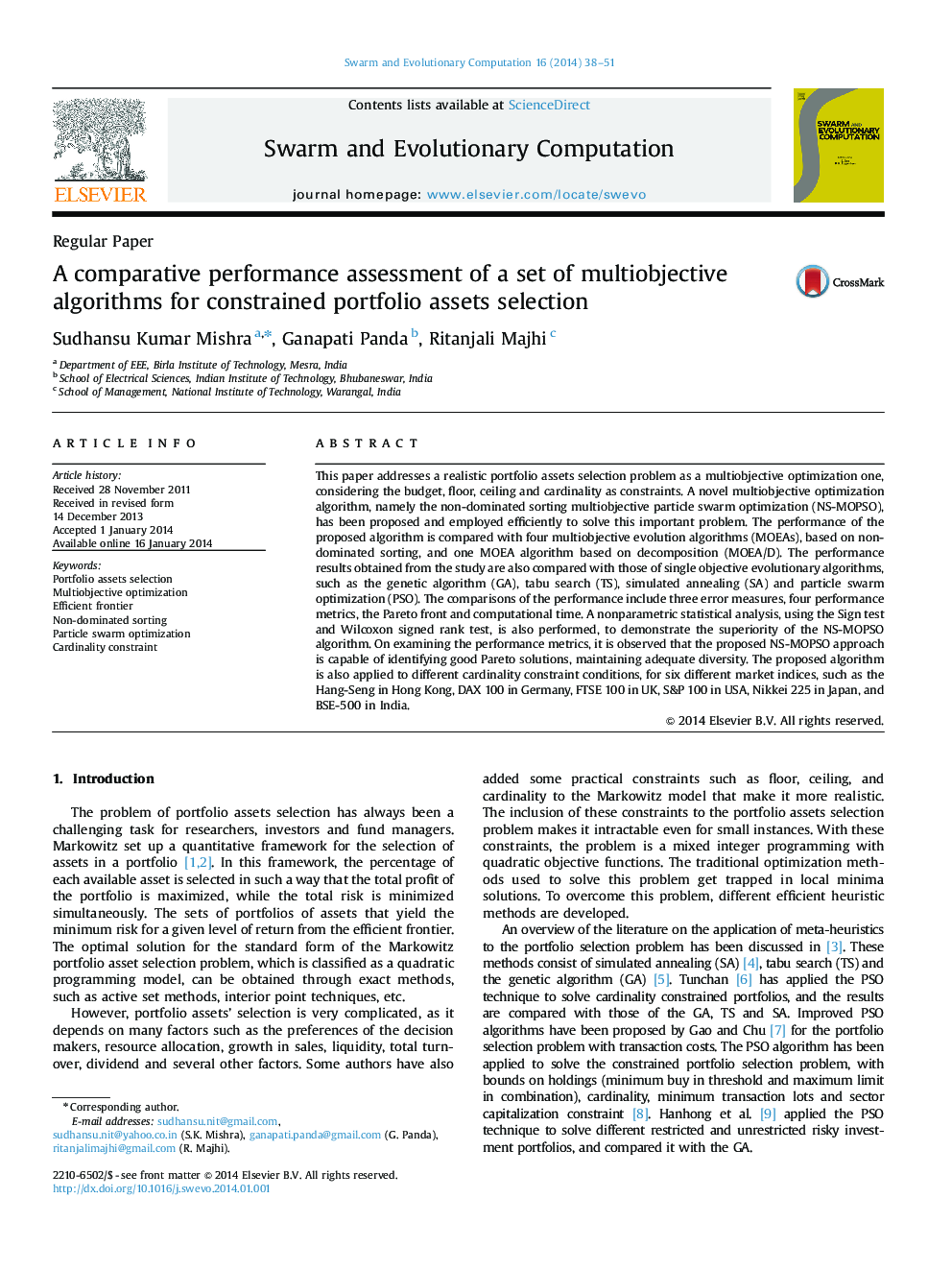| Article ID | Journal | Published Year | Pages | File Type |
|---|---|---|---|---|
| 493981 | Swarm and Evolutionary Computation | 2014 | 14 Pages |
•Non-dominated sorting multiobjective particle swarm optimization algorithm (NS-MOPSO) is proposed to solve portfolio assets selection problem.•The assessment of the performance is done based on three error measures, four performance metrics, Pareto front and computational time.•The investor has to invest approximately 10 percent of the available assets, to explore a wide risk-return area.•The portfolio manager has the option to make a trade-off between risk and return for different cardinality constraints.
This paper addresses a realistic portfolio assets selection problem as a multiobjective optimization one, considering the budget, floor, ceiling and cardinality as constraints. A novel multiobjective optimization algorithm, namely the non-dominated sorting multiobjective particle swarm optimization (NS-MOPSO), has been proposed and employed efficiently to solve this important problem. The performance of the proposed algorithm is compared with four multiobjective evolution algorithms (MOEAs), based on non-dominated sorting, and one MOEA algorithm based on decomposition (MOEA/D). The performance results obtained from the study are also compared with those of single objective evolutionary algorithms, such as the genetic algorithm (GA), tabu search (TS), simulated annealing (SA) and particle swarm optimization (PSO). The comparisons of the performance include three error measures, four performance metrics, the Pareto front and computational time. A nonparametric statistical analysis, using the Sign test and Wilcoxon signed rank test, is also performed, to demonstrate the superiority of the NS-MOPSO algorithm. On examining the performance metrics, it is observed that the proposed NS-MOPSO approach is capable of identifying good Pareto solutions, maintaining adequate diversity. The proposed algorithm is also applied to different cardinality constraint conditions, for six different market indices, such as the Hang-Seng in Hong Kong, DAX 100 in Germany, FTSE 100 in UK, S&P 100 in USA, Nikkei 225 in Japan, and BSE-500 in India.
